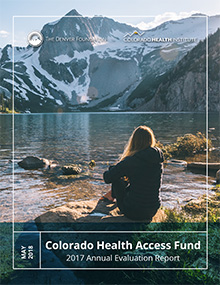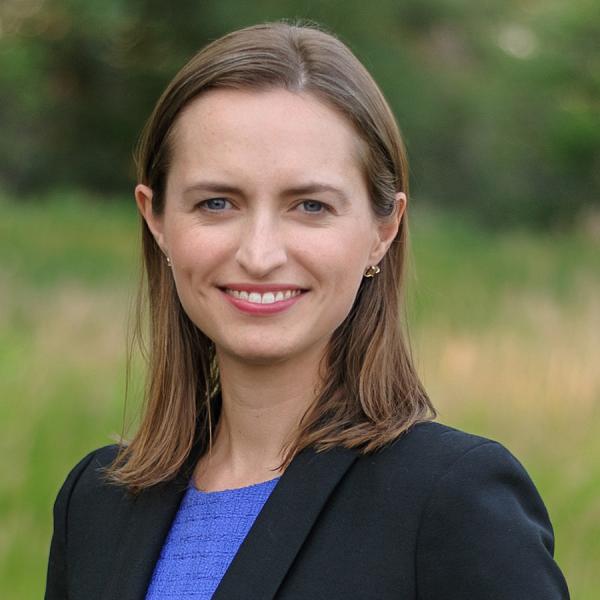17,000 Strong: Our Evaluation of the Colorado Health Access Fund
Last year, 17,000 Coloradans received behavioral health services that they wouldn’t have otherwise. That’s thanks to $3.9 million from the Colorado Health Access Fund, administered by The Denver Foundation.
Established in 2015 at The Denver Foundation with an anonymous gift of $40 million, the Colorado Health Access Fund aims to expand behavioral health care access to the neediest Coloradans. It does that with a variety of community partners — from a program that connects immigrants in detention with highly trained social workers to school-based substance use treatment for Denver teens.

The Fund has served thousands of Coloradans to date — including those experiencing homelessness or unemployment, children, adolescents and seniors, people without adequate insurance, Coloradans in rural or underserved parts of the state, and others in need.
The Colorado Health Institute has served as the Fund’s evaluator since its inception. This week, in partnership with The Denver Foundation, we are releasing the results of the second annual evaluation report. Our report analyzes results from the second year of grantmaking, which includes 35 grantees supported during the funding year spanning 2016-17.
CHI’s evaluation asks three questions:
- What progress have the Fund’s grantees made towards impacting behavioral health care access in Colorado?
- To what extent has the Fund stayed true to its original intent?
- How is behavioral health care access changing in Colorado?
Five notable findings from the 2017 evaluation:
- Most of the Fund’s grantees are offering counseling and direct behavioral health services — like therapy for seniors, school-based behavioral health services, psychiatric care and telehealth services.
- The biggest challenge they face is hiring and recruiting staff.
- Though most grantees have successfully rolled out their programs as planned, many depend on the Fund’s financial support, raising concerns about their sustainability.
- Increasing the Fund’s focus on serving rural Coloradans will continue to be important. Last year, about 12 percent of the Fund’s support went to rural parts of the state. That falls short of the Fund’s intended 20 percent rural grant funding rate.
- Fund-supported programs are targeting their efforts to help Coloradans who face the highest barriers to care. For example:
- Adolescents: Mental Health Center of Denver is addressing youth behavioral health needs by offering drop-in counseling hours for 14- to 26-year-olds.
- Immigrants and Refugees: The Rocky Mountain Immigrant Advocacy Network provides services to people at an immigrant detention center in Aurora.
- Native Americans: Denver Indian Health and Family Services is serving American Indian Coloradans by offering culturally appropriate, integrated behavioral health care, including access to traditional healing services.
- Older Coloradans: Multiple programs are serving the behavioral health needs of older Coloradans, including the Denver Housing Authority, Seniors’ Resource Center, and the Jefferson Center for Mental Health’s Senior Reach program.
Grantees’ approaches to expanding access to behavioral health care are as diverse as the people they are serving. This year, we will continue evaluating the Fund’s impact, learnings and achievements.
But this year is a little different. Since the Fund is scheduled to spend down its resources by 2022, this year marks the halfway point.
So, the CHI team is taking on an additional question in 2018: In its remaining years, how can the Fund focus its resources to address the biggest needs in behavioral health — while promoting innovation and health equity for all Coloradans?
We’re conducting interviews, synthesizing the literature, and convening stakeholders to help the Fund find the best way forward. Stay tuned for our recommendations for the most effective, sustainable investments to make in behavioral health.
Learn about the Colorado Health Access Fund on The Denver Foundation website here.
And see all of CHI’s work for the Colorado Health Access Fund here.

